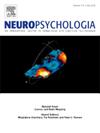快乐成长与强迫性享乐主义:关于浪漫爱情和成瘾性疾病的大脑激活元分析》。
IF 2
3区 心理学
Q3 BEHAVIORAL SCIENCES
引用次数: 0
摘要
由于浪漫爱情与成瘾性疾病在行为特征上的相似性,"对某人上瘾 "这一概念超越了单纯的文学隐喻,拓展了研究浪漫爱情的视角,并启发了对成瘾性疾病的干预。然而,目前还缺乏从神经层面系统探讨浪漫爱情与成瘾之间异同的研究。在这项研究中,我们进行了广泛的文献检索,纳入了 21 项关于浪漫爱情的研究和 28 项关于成瘾性疾病的研究,重点关注利用线索反应性范式进行的 fMRI 研究。通过激活似然估计法,我们研究了爱情和成瘾的神经机制的异同。结果表明,前扣带回皮层(ACC)在浪漫爱情和成瘾性疾病之间表现出共享和不同的激活集群。此外,浪漫爱情比上瘾障碍更频繁地激活腹外侧前额叶皮层(VMPFC),而上瘾障碍比浪漫爱情更频繁地激活后扣带回皮层(PCC)。我们讨论说,ACC 和 VMPFC 的激活可能象征着自我扩展,这是浪漫爱情发展的一个过程,有助于形成更丰富的自我。我们的研究表明,虽然浪漫爱情与成瘾性障碍有着共同的神经基础,但它们在神经表征上的明显差异将它们区分为快乐成长与强迫性享乐主义。本文章由计算机程序翻译,如有差异,请以英文原文为准。
Joyful growth vs. compulsive hedonism: A meta-analysis of brain activation on romantic love and addictive disorders
Due to the similarities in behavioral characteristics between romantic love and addictive disorders, the concept of being “addicted to someone” transcends mere literary metaphor, expanding perspectives on the study of romantic love and inspiring interventions for addiction. However, there has been a lack of studies systematically exploring the similarities and differences between romantic love and addiction at the neural level. In this study, we conducted an extensive literature search, incorporating 21 studies on romantic love and 28 on addictive disorders, focusing on fMRI research utilizing the cue reactivity paradigm. Using Activation Likelihood Estimation, we examined the similarities and differences in the neural mechanisms underlying love and addiction. The results showed that the anterior cingulate cortex (ACC) exhibited both shared and distinct activation clusters between romantic love and addictive disorders. Furthermore, ventromedial prefrontal cortex (VMPFC) was more frequently activated in romantic love than in addictive disorders, while greater activation within the posterior cingulate cortex (PCC) was found in addictive disorder compared with romantic love. We discussed that the activation of ACC and VMPFC may symbolize self-expansion, a process that characterizes the development of romantic love, contributing to a more enriched self. Our study suggests that while romantic love and addictive disorders share a common neural foundation, the discernible differences in their neural representations distinguish them as joyful growth versus compulsive hedonism.
求助全文
通过发布文献求助,成功后即可免费获取论文全文。
去求助
来源期刊

Neuropsychologia
医学-行为科学
CiteScore
5.10
自引率
3.80%
发文量
228
审稿时长
4 months
期刊介绍:
Neuropsychologia is an international interdisciplinary journal devoted to experimental and theoretical contributions that advance understanding of human cognition and behavior from a neuroscience perspective. The journal will consider for publication studies that link brain function with cognitive processes, including attention and awareness, action and motor control, executive functions and cognitive control, memory, language, and emotion and social cognition.
 求助内容:
求助内容: 应助结果提醒方式:
应助结果提醒方式:


